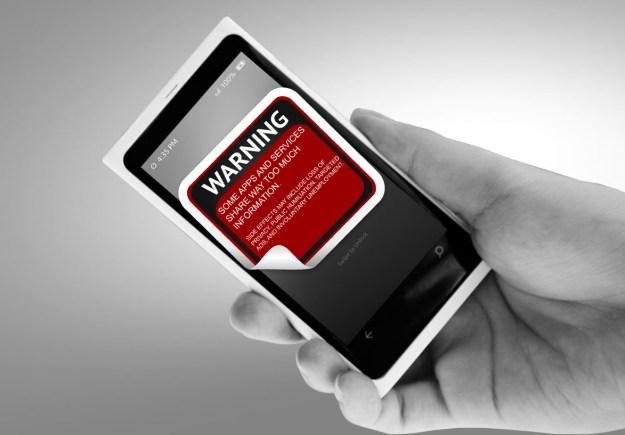
A person whose name I failed to find on Google once said, “If you are not paying for the product, you are the product.” What this mystery wordsmith likely said next is, “If you are not making money off the product, you probably suck at using it.”
Such is the plight of the average technology user – me, you, and anyone else this side of a Stanford University computer science degree. We fail to fully grasp most of the gadgets, apps, and social networks that permeate 21st century life – especially when it comes to online privacy, the opposite of which fuels a healthy chunk of the Web and apps. And as a result of our ineptitude, we’ve let a bunch of strangers make money off of our lives.
Most talk about technology and privacy centers around the ways companies collect our data – advertising cookies, Facebook “Like” buttons, location-collecting apps, everything made by Google. That’s perfectly understandable. But it’s also counterproductive. It’s time for us, the uneducated users, to take some responsibility for our ignorance.
So here’s a simple challenge: If you don’t understand how a certain connected service really operates, don’t use it until you do.
New app? Download it. New social network? Join. New gadget? Go buy it. Click. Click. Click.
In an age when new digital products and services pop up literally every day, we’ve become trained to jump on board the hot thing without a single thought. New app? Download it. New social network? Join. New gadget? Go buy it. Click. Click. Click. Our promiscuous approach to technology adoption – though totally understandable – makes us junkies, not victims.
This does not absolve companies of responsibility for the privacy-crushing practices that permeate consumer tech. Some companies seem to make privacy protection as complicated as possible, just to dupe us into giving out the goods. Sharing options are turned on by default. Activity tracking takes place without our knowledge. Our account settings are explained in gibberish, splintered into 19 different options that could bewilder even the savviest among us. Or they don’t give us privacy settings at all, as is the case with the vast majority of websites. Terms of service and privacy policies, where all of this information is supposedly laid out for us, are almost universally unintelligible, and always too damn long. All of these failures belong to those who created these products – whether they decided to trick us on purpose, underestimated how easily we get confused, or just suck at privacy, too.
For example, a friend recently purchased a new health band – one of those watch-like gizmos that tracks how much you exercise. He asked me, as the local expert on such matters, whether it was a better privacy practice to sign up for an account directly with the company, or to use Facebook Connect to create a profile. No question: Don’t use Facebook – that’s guaranteed privacy suicide. But after perusing the health band company’s privacy policy, which vaguely “explained” that collected user data could essentially be shared with basically any “third party,” I was at a loss. “Just don’t use it at all,” I said. “That’s really the only good option.”
That users must sacrifice privacy to use the product is the company’s failure. But it is our failure if we do so anyway – even if we don’t realize what’s happening. We have access to more information than anytime in history. Ignorance is not an option.
Instead, as my third-grade D.A.R.E. officer liked to say, arm yourself with knowledge that lets you make better choices: Download an anti-tracking tool for your browser. Don’t download apps willy nilly. Turn off location services in your phone. Don’t share revealing details on social networks. Never check in anywhere. Don’t connect via Facebook and Twitter. Read blog posts about specific products and privacy. Use Tor when browsing, and DuckDuckGo for search. And, as painful as it may be, try your best to read through the legally binding terms of services and privacy policies – even if they make you want to tear out your eyeballs – then sign up, if you so choose.
Of course, this modus operandi has two glaring problems: You can’t control what your friends post about you. And no matter how informed you are, no matter how careful, your personal information will probably still get collected – it usually starts as soon as you sign up for Internet or wireless access. The goal here is to limit the bleeding as much as possible.
Even as I write this, I realize the futility in this advice – I don’t even follow much of it myself. But as we move deeper into this age of constant full disclosure, we could at least think about trying.


